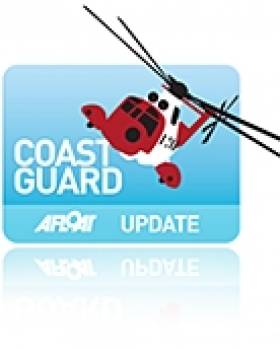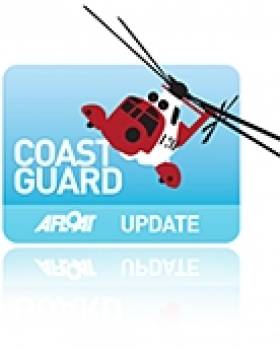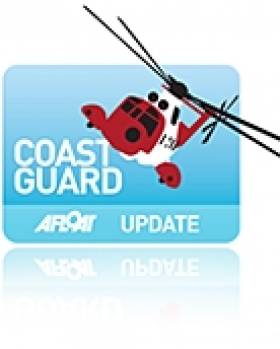Displaying items by tag: Medevac
Coastguard Working Closer With HSE Says Chief
#Coastguard - The Irish Coast Guard enjoyed an eight-fold increase its work with the HSE last year, according to the service's chief.
Chris Reynolds was speaking before a select sub-committee hearing at the Oireachtas last week, at which he explained that the national coastguard has taken on a bigger role in responding to "semi heart-attack" cases.
"They often say the best medicine for this type of heart attack is aviation fuel," said Reynolds. "One has to get to a hospital within a certain short period. Life expectancy and quality of life are better increased, accordingly. We have engaged with the HSE on this particular role."
The medevac role is one much more applicable to the Irish Coast Guard's air units today, especially with the fourth new-generation Sikorsky S92 rescue helicopter brought into service last month signalling the modernisation of the fleet in spite of a 7% reduction in the State's maritime transport and safety programme.
Reynolds added that the Department of Health "is examining the holistic area of air medical services including the Air Corps, air services and the coastguard and will produce a report for the Cabinet sometime this year."
Meanwhile, Reynolds also acknowledged the increase of hoax calls to the Irish Coast Guard in recent years, and gave an interesting reason for the spike in numbers.
"The issue arose in 2010 because a decision was made then that when one called 999, one was offered the coastguard as well," he said, noting that the situation "has been constant ever since".
Yet while hoax calls remain an upward trend, Reynolds emphasised that there is "a difference between a false alert and a hoax. Our operators are smart enough to recognise most hoax calls.
"Occasionally, we get a clever one, forcing us to launch a helicopter or lifeboat needlessly."
Howth Coast Guard Assists Medevac From Fishing Vessel
#Coastguard - Howth Coast Guard was among many emergency units responding yesterday afternoon (Sunday 26 January) to an incident on a fishing vessel in Dublin Bay where a crew member had fallen in a storage area and lost consciousness.
Coastguard helicopter Rescue 116 was dispatched to get a winchman paramedic on board the vessel amid difficult weather conditions to stabilise the patient.
Due to the sea state and the location of the casualty, it was considered the safest option for the trawler to head to port with the coastguard paramedic remaining on board.
The Irish Coast Guard rescue team from Howth, a Dublin Fire Brigade unit from Kilbarrack and a HSE ambulance from Swords were tasked to attend the West Pier in Howth.
The patient had regained consciousness by the time he was successfully extracted by stretcher through narrow hatches to the deck and onto the pier, from where he was transported by ambulance to Beaumont Hospital for further evauluation.
Dublin Rescue Helicopter In Christmas Eve Medevac
#Coastguard - The Howth unit of the Irish Coast Guard reports that it was tasked to assist the Dublin-based rescue helicopter with a medical evacuation landing on Christmas Eve.
Rescue 116 landed at the OBI fire brigade training college on Malahide Road where the casualty was transferred to a waiting ambulance.
The medieval marked the first such operation for Rescue 116 and the expansion of the medevac programme trialled by the Shannon-based helicopter earlier this year.































































